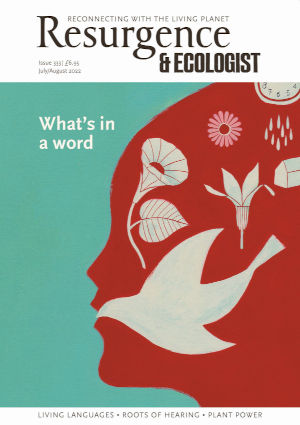Sicelo Mbatha was born and raised in rural South Africa, in poverty and under apartheid rule. Despite the considerable disadvantages with which he came into the world, what he did have was a profound connection with Nature. Black Lion is the story of his journey, against all odds, to become a wilderness guide. Mbatha had a singular aim: to help people, including those from his own community, to connect to spirit through the natural world. He makes a compelling narrator, lyrical and unflinchingly honest.
The book starts with a tragedy in the wild that occurs when Mbatha is a child and, without counselling or support, leaves him emotionally scarred. His recognition of Nature’s cruelty, however, is tempered by the teachings he draws from the episode. It is the author’s humility and his willingness to look deeply into his own psyche and rural upbringing and consider how interconnectedness creates balance and harmony in the natural world that make Black Lion a must-read for anyone who cares about the planet. The perspective of a voice so often overlooked in conversations around ecological stewardship is refreshing, to say the least.
On this point, Mbatha is upfront about the harm caused by models of conservation that do not seek partnership with local people or that fail to credit them for their expertise. To understand why men in local communities turn to poaching, he points to the historical conditions that have created this behaviour. The casual dismissal of Indigenous wisdom and dispossession from the land are to blame, he says. “Little wonder that they were poachers, for how can you protect something you have never laid eyes on? How can you embrace what has been stolen from you?”
Being denied opportunities to protect one’s heritage or connect with the land or to experience wildlife as anything other than a threat to livestock (which is needed for survival) has created low self-esteem and disconnect, says Mbatha. White conservationists must involve local people in decision-making in order for wildlife to be protected, and for them to experience the Earth as kindred, he gently insists – common sense, you’d think, but the colonial mindset persists. And Mbatha is passionate about the need to create community tourism experiences as part of the wilderness safari stays, as a meaningful way of creating dialogue and a thriving local economy.
He also laments the fact that so many of the beautiful wilderness trails he leads are only accessible to privileged and mainly white visitors. When he is finally in a position to change this, he speaks of the profound satisfaction of being able to lead trails in his own Zulu language, and give youngsters a taste of the deep beauty he routinely experiences, and which he feels is their birthright.
The book is fascinating on the subject of animal–human communication, and how this telepathic relationship can often save lives and offer more protection than a loaded gun when rangers are on patrol. Nature lovers are in for a treat, as Mbatha writes exquisitely of his encounters with individual trees, birds, plants and animals. His rapture and the nourishment and enchantment he experiences become our food and drink too. In the dark times in which we live, this is no mean feat.
Black Lion is that rare thing, a book that feels like a transmission of energy, a book to take you out of fear and into love. I’d defy anyone who is jaded and ground down not to feel a stirring within.







